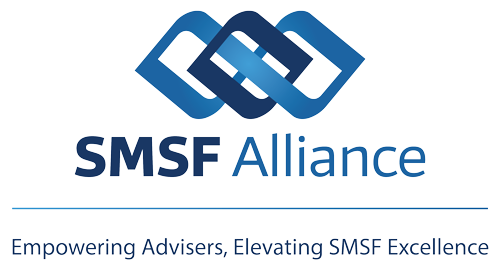This check list includes some items that aren’t exclusively End of Financial Year but might be addressed at this time for the sake of convenience. Some items constitute financial advice so require licensing or need closer analysis to ascertain applicability.
1. Check that concessional contributions have not breached the $27,500 limit unless they can be included within an unused concessional contributions allowance dating from 1 July 2018. This option requires a total super balance, at 30 June 2021, of less than $500k.
2. If this is a year of unusually high taxable income a double contribution strategy might be considered. This can allow an additional $27,500 to be contributed in June for allocation to the member account in July. Be cautious, as this strategy will utilise all of next year’s contribution limit.
3. Non-concessional contributions can be made provided the member’s total super balance as at 30 June 2021 was less than $1.7 million (in all funds). The standard limit is $110k but the 3 year bring forward provision may be activated, subject to the total super balance at 30 June 2021, if it has not already been triggered in the last 2 years, allowing a contribution of $330k (TSB<$1.48m), $220K (TSB is $1.48m to <1.59m), $110k (TSB is $1.59m to $<$1.7m)
4. If the total super balance is in excess of what is required, it might be lowered by lodging a TBEN that reflects the net value of the assets held. (Typically, the total super value of real estate can be reduced by 5% representing selling costs including commission.)
5. Note that:
- members over 75 may only receive SG contributions
- members over 67 when the contribution is made, will generally need to meet the work test – this will change next year for non-concessional contributions.
- the concessional contribution cap includes any employer contributions including SG contributions.
- all personal contributions are regarded as non-concessional unless the appropriate intent to claim a tax deduction form has been supplied to the trustee.
- fund expenses that have been paid personally will be deemed non-concessional contributions unless notified as concessional contributions on the approved form. Fund expenses that have been paid by any other party will be deemed concessional contributions.
- in specie contributions of eligible assets may be made. There may be capital gains tax and stamp duty consequences. Such contributions from an entity other than the member or spouse will be regarded as concessional contributions so be careful.
6. Consider the possibility of a recontribution strategy to lower the taxable portion of the member’s benefit. Failure to do so could result in future claims by adult children who have been subject to avoidable death benefit tax. With the removal of work test requirements for those aged 68 to 75, from 1 July 2022, now could be an opportune time to begin the process – a withdrawal in June could lower the total super balance sufficient to allow a recontribution in July. Note that changes to pension accounts may trigger a change to the member’s assessment for government pensions and the health care card as grandfathering may be lost.
7. Have any members sold an eligible dwelling and are still within the time frame (90 days pf settlement) to make a downsizer contribution of up to $300k? Can this be delayed until after 30 June if the resultant TSB increase will adversely affect NCC eligibility in 2023. Also consider that a member between 60 and 65 will be able to contribute in July, even for existing sales if the time limits can still be achieved.
8. Consider making an after-tax contribution (non-concessional) into super to qualify for the government co-contribution.
9. Consider making a spouse contribution for a non-working or low-income spouse who is less than 70 years of age.
10. Ensure that all pension minimums have been drawn by June 30. A prorata amount is required if the pension commenced during the year.
11. Where the pension drawn is in excess of the minimum, consider if these should be reprocessed as lump sum drawdowns from any existing accumulation accounts to maximise the level of fund assets in the tax free pension environment. If all assets are in pension consider processing the excess as a partial pension commutation to create additional transfer balance cap room for future pension commencements. This will require suitable documentation.
12. Transition to retirement pensions should be checked to ensure they have not breached the 10% maximum.
13. If a fund is sufficiently in accumulation mode, consider optimising the fund’s overall capital gains tax position by realising capital losses where the fund has realised capital gains for this financial year. Be aware of the Wash Sale provisions which will apply if transactions simply adjust the cost base without altering the investment portfolio or without assuming some investment risk in the process.
14. Ensure that any funds with in-house assets have not breached the 5% of gross asset level as at 30 June. Be aware that valuations, yet to be determined for the end of this financial year, will be relevant to this consideration.
15. Ensure that any current rent or previous year’s trust distributions owing from any asset involving related parties has been paid to the fund before June 30.
16. If a fund has both pension and accumulation accounts holding assets in an unsegregated manner, consideration might be given to establishing a second fund to hold the accumulation accounts to achieve effective segregation for tax purposes. There are contribution, CGT and acquisition of assets from related party considerations so be careful.
17. Individual trustees might take this opportunity to consider establishing a corporate trustee considering administrative and penalty regime concerns.
18. Take this opportunity to check on the validity and appropriateness of any existing binding death benefit nominations.
19. If tax deductible life insurance premiums are applicable to the fund this is a timely opportunity to ensure the benefit will be paid to a tax dependant to avoid generating an untaxed element. If this is not the case, then take remedial action. If it is the case, then consider that eligibility for a future service deduction will be enhanced if premiums are paid monthly.
20. If the fund holds reserves that are no longer required, consider distributing them to existing members. Provided the increase to the respective member accounts are prorata and less than 5% there will not be any concessional cap consequences. The distribution will be counted against concessional caps if member accounts are increased by 5%, or more, or if the distribution is not prorata. This is not necessarily a bad thing. If the cap is breached, the resultant release to the individual, particularly if they are in a low personal tax environment, could be regarded as a legitimate strategy to access reserves. Reserve allocations can be made to members of any age.
21. You might take this opportunity to check for lost super.
22. Consider that the administration of any existing fund transferring to our SMSF administration service will receive a waiver of our base fees for the 2022 year if we are advised of its name by 30 June2022.


